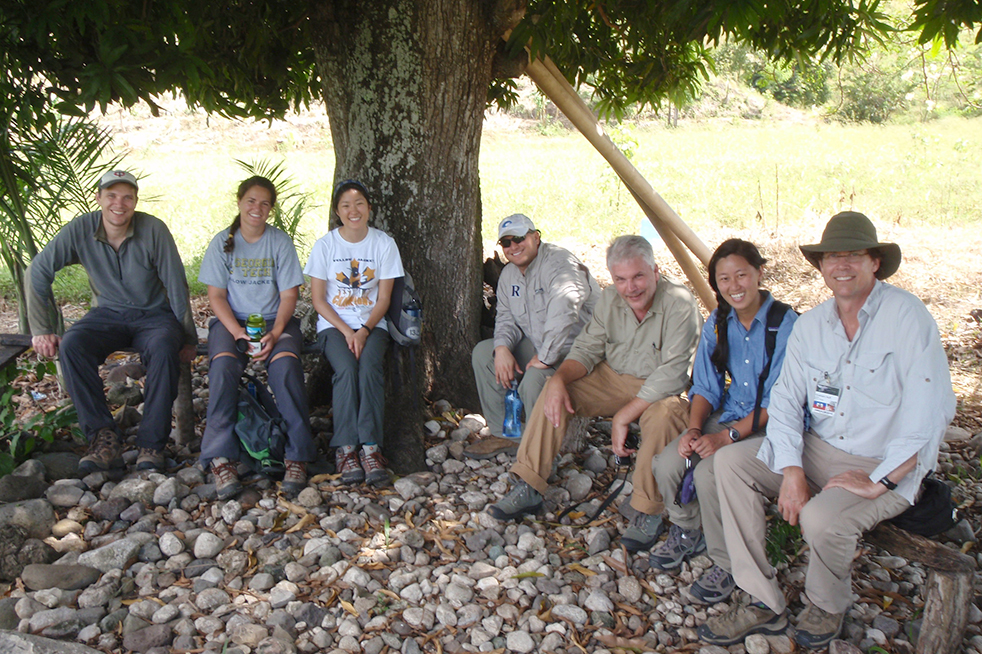Robert Wallace, a researcher at Georgia Tech Research Institute (GTRI) and a leader in the Food Processing Technology Division (FPTD), is currently working with students to find a cheaper alternative for animal feed. Working with GTRI for about twenty-five years, Wallace hopes his findings may even help individuals in developing countries.
“Originally, I began looking at algae for biofuel applications, as it is noncompetitive with other sources of bio-based oils. As time went by, it became obvious that commodity foods, i.e. corn, soy, etc., are closely tied to fuel prices,” said Wallace. “A large increase in food prices is inconvenient for Westerners but is crippling for people in developing nations. So we decided a better use for the biomass was animal feed.”
Wallace’s research led to new findings in the area of focus while greatly impressing his fellow research assistants.
“Up until now, people generally just looked at it as a potential biofuel, but he was looking at it for animal feed as a cheaper alternative or as a supplement. It can’t replace feed completely, but what we are looking at is a protein along with another species called duckweed,” Catherine Kwon, GTRI research assistant and BME major, said. “We can substitute twenty percent into traditional animal feed which is usually corn or soy based.”
The research experiment, moreover, may differ from other experiments, as the project tackles a major issue: sustainability.
“I really like that it’s able to make a difference in developing nations and under served communities. I never thought I would be able to do this kind of a project, so it’s been pretty rewarding in that sense,” said Kwon.
In conjunction with Ridgeland High School, Wallace, Kwon, and other GTRI researchers on the project visited Haiti to teach students at an agricultural trade school some of the skills needed to work with duckweed, a possible animal feed substitute.
“We were working with the agriculture class and teaching them the potential of duckweed. We tried to teach the Haitian students the basics and the potential these aquaponics systems have,” Kwon said.
“We partnered on the ground with Zanmi Agrikol which is a daughter organization of Partners in Health. It was very insightful,” added Wallace. “The visit was helpful in learning about the Haitian people, agricultural practices and social norms.”
The partnership with Ridgeland High School results from an effort to help promote STEM skills in high school classrooms. Moreover, Tech students mentor the Ridgeland High School students while interacting with them through Skype or on-campus events.
Although the project seems to running fairly efficiently, the use of algae has led to some minor difficulties. To combat this issue, Wallace and Kwon plan to look into other methods to remove the algae.
“Algae, in particular, are pretty difficult to harvest out of the water. The algae cells are pretty small so people have tried filtering it but it quickly blinds the filter so nothing else passes through which is obviously not very good,” said Kwon.
When asked about ideas for future research experiments, Wallace rightly claimed, “My whole life is an experiment.”
